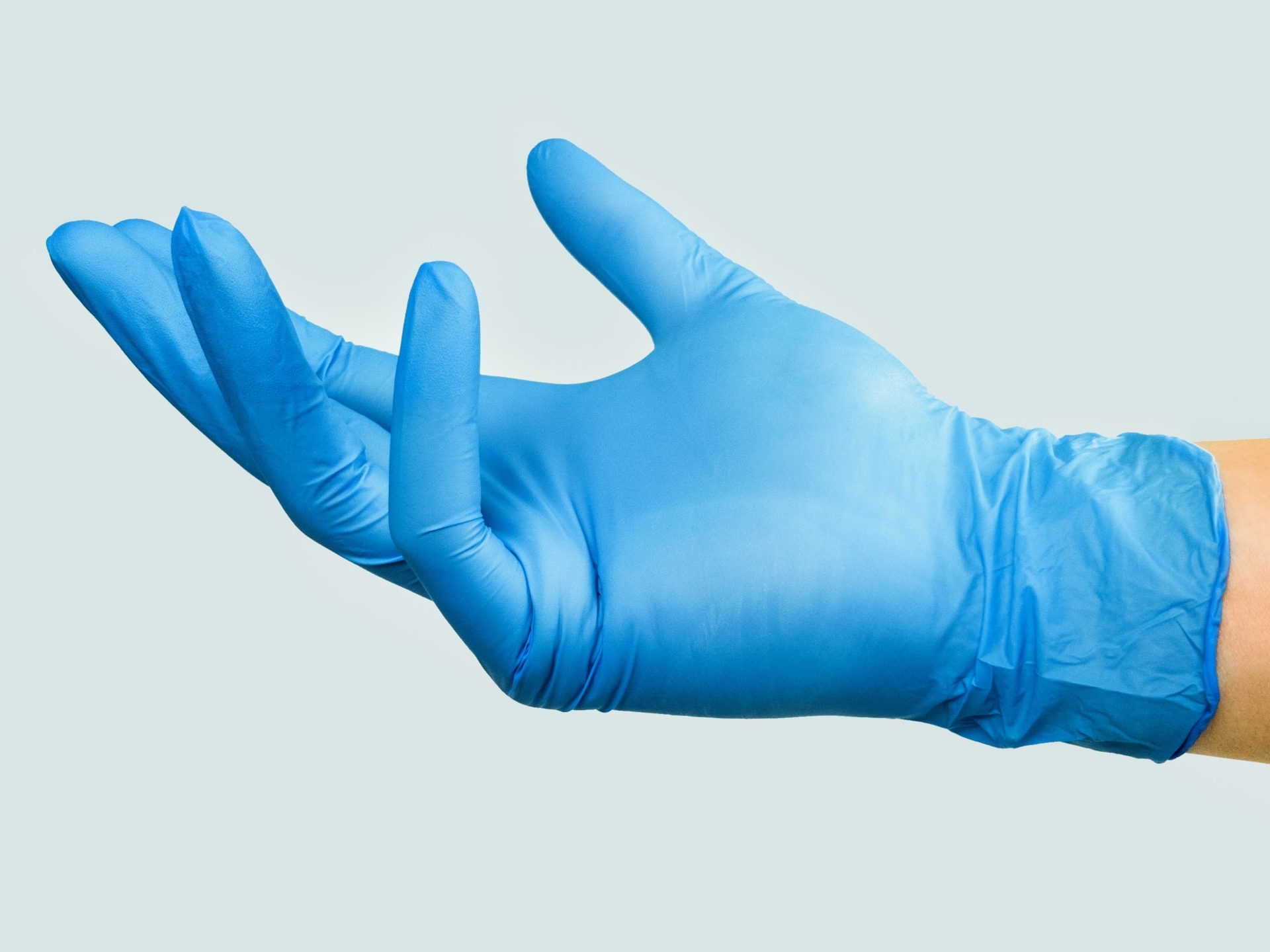Question
I read your article on latex gloves that states there is a hazard if people inhale the dust from latex gloves. Is there any danger to a student in a school cafeteria that eats food that is prepared by someone wearing latex gloves?
Answer
The hazards of latex exposure exist for those who are allergic to it, but not otherwise. Latex can be found in varying degrees in many products, but items such as powdered latex gloves and latex balloons are particularly high in content. If a person is allergic to latex, strict avoidance is best. Individual sensitivity can increase over time, causing an allergic reaction to smaller and smaller amounts of latex. Interestingly, hospitals have moved away from using powdered latex gloves for a number of years, as these gloves were felt to increase the risk of latex allergy in workers. Since this shift, there have been fewer hospital workers developing latex allergy! In addition, other industries have moved toward less frequent use of powdered latex gloves, or began using non-latex gloves only, to reduce the risk.To answer your question, yes, a person allergic to latex could definitely have an allergic reaction to food handled with latex gloves. Therefore, it would be best if no latex products were used to prepare food in this situation.
Question
I have a family history of strong latex allergy (among many other allergies). I know the best solution is prevention, so I avoid latex for myself and my children as much as possible. But there are many rubber and other products that might also contribute to latex allergy, and I'm not sure how to know which materials I should try to avoid and which ones are considered safe. For example, I am currently shopping for sandals for my family, and many shoes contain latex and similar materials. If they don't say "latex free," but they do describe what materials they are made of (urethane, vulcanized rubber, etc.), how do I know if these are likely to cause problems for my family or not?
Answer
A family history of natural rubber latex allergy does not necessarily predict that you have latex allergy. If you believe you have had problems with skin or respiratory symptoms around latex, consult a qualified allergist to be tested to latex. If you have had no problems around rubber products in the past, and you are not yourself allergic, you need not be concerned about coming in contact on occasion with rubber latex-containing products.
Those persons who have regular contact with latex protein in rubber gloves, such as health care workers or workers using latex materials in manufacturing, are at greatest risk to develop latex allergy.
Back to Resources
Latex Allergies
Find answers to popular questions about latex allergies.
